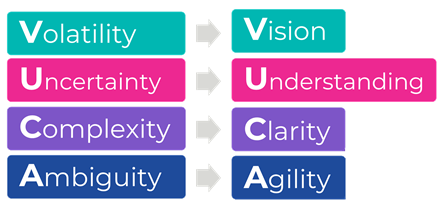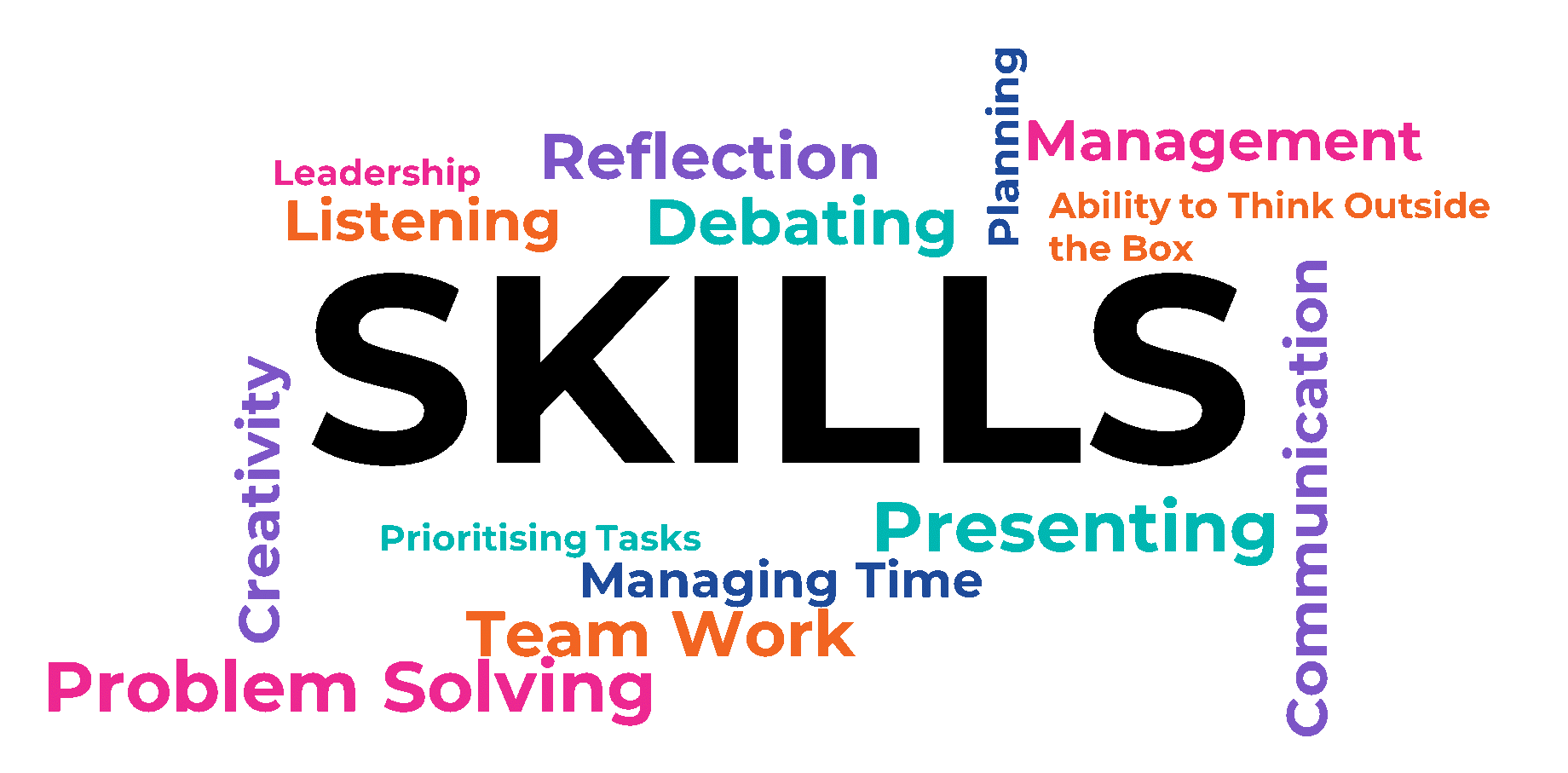The workplace and our society face many current challenging situations. You may have experienced considerable changes to your own working life, whether as an employer or employee, self-employed or business owner, or currently without paid work. However, these challenges also present opportunities to reflect, reset priorities, and find new and meaningful ways forward.
The changing workplace
Even before the Coronavirus pandemic of 2020/21, workplaces were already undergoing continuous change. Gone are the days when school leavers would join a workplace for a lifetime career. Many people have instead set up their own successful businesses, while others have developed ‘portfolio careers’, changing career direction to build different skills and experiences or taking on more than one role at once. Even more have taken career breaks to gain new qualifications, care for relatives, volunteer or travel. Employers no longer expect to see a straightforward CV; instead, they often seek and reward the knowledge, skills and endurance that diverse experiences bring. Therefore, regardless of where you are on your career journey, you may have already achieved highly sought-after transferable skills and knowledge that can be used to help you make decisions on what is best for you now and in the future.
The VUCA World
You may have heard the term ‘VUCA’ (or VUCA World), which stands for volatility, uncertainty, complexity and ambiguity, and originated to describe complex military and security contexts. This is now used to illustrate the unpredictable modern business world, where organisations no longer operate in a steady, unchanging local environment but are subject to new business realities, characterised by continuous change. These include:
- economic uncertainty
- continuously evolving marketplace
- rapid and disruptive pace of technology
- multi-generational workforce.

What could this mean for you?
Rather than viewing VUCA as negative, different terms can be fitted to the acronym: vision, understanding, clarity and agility, i.e., positive qualities which answer the challenges of VUCA. By focusing knowledge and skill development on these four positive aspects, learning can be facilitated to match the demands for adapting, placed on people and organisations by the demands of twenty-first-century contexts.
Therefore, this current ever-evolving world of work has many positive aspects and opportunities, including:
- A career that may involve several different jobs and employers, continually developing skills while providing new challenges and fulfilment.
- Greater flexibility in working conditions and experiences, benefitting people with diverse interests and other characteristics.
- Employers seek people who are agile, i.e., enterprising, resourceful and adaptable, and each job opportunity can lead to a multitude of different career pathways.
- Ability to develop creativity and entrepreneurial skills, whether as an employee or running own business.
There are further resources to help manage change within a separate theme under the Applying Psychology to Work Hub, which you may also find useful.
What skills and knowledge are most attractive and useful?
The Manpower (2015) Flux Report surveyed UK HR Leaders and Line Managers and found the top requirement is for employees to be able to deal with change and uncertainty. However, as important are:
- interpersonal skills
- innovation and creativity
- IT skills
- leadership skills (e.g., ability to motivate others, have a positive mindset, take the initiative, make decisions, and accept responsibility).
Furthermore, the CBI (Confederation of British Industry) (2019) CBI/Pearson Education and Skills Survey Report, which includes 190,000 employers, places strong emphasis on how essential and interconnected character, knowledge and skills are, in enabling people to be ‘work ready’. Employers look for much more than just formal qualifications:
- Character: individual traits, values and strengths, leading to confidence in managing setbacks, alongside an inclusive and compassionate outlook.
- Knowledge: strong education in a variety of subject areas, alongside creativity and achievement, to support flexible career pathways.
- Skills: application of knowledge and character, through teamwork, leadership, creativity, critical thinking, problem-solving, IT literacy and communication.

Therefore, having a broad knowledge and experience base, plus a range of skills that can be used in a wide variety of settings, offers more opportunities in the world of work.
How could you assess and improve your current skills?
Most people already have some of these skills and attributes, often known as ‘transferrable’ and ‘soft’ skills, and anyone can develop these further for any current or future working role. We gain such skills through:
- work, social and life experiences
- studying, learning, experience and knowledge improvement
- interests, passions and hobbies.
Taking the time to reflect on your own skills, knowledge and character, using the resources in this theme to assess where you are now and where you could develop even further, may help to point you towards new goals and opportunities (see Resources section below for some of the areas covered).
How do you protect your mental health in the VUCA World?
In today’s VUCA workplace it is normal to feel self-doubt and underconfident. ‘Imposter syndrome’ (believing that you are not as competent as others perceive you to be) is a common occurrence and can make the experience of work more difficult, even if outwardly you have all the signs of being successful. Inwardly, you may be experiencing stress, anguish and distress. This can lead to unhelpful thoughts and difficult emotions, including anxiety and depression.
Common signs are:
- inability to realistically assess your own competence and skills
- attributing your success to external factors
- berating your performance
- fear that you will not live up to expectations
- overachieving, with the cost of constant anxiety
- sabotaging your own success
- setting particularly challenging goals and feeling disappointed when fall short.
To protect our mental wellbeing, we need to be mindful of imposter syndrome and other unhelpful thoughts, recognising that these are part of the shared human experience of the VUCA world we live in.
Using the Signposts for Work resources to build confidence around the skills and experience you already possess, plus developing self-compassion skills towards fostering self-acceptance (accepting the self despite flaws and negative evaluations from others), may help. You may also find the Wellbeing for Work themed resources useful for this.
Resources
The resources under this Signposts for Work theme will help you in areas such as:
- assessing own competence and skills, working towards developing own authentic personal brand
- writing CVs and improving interview skills
- developing career resilience and succeeding at work
- using technology more confidently
- reflecting and improving on communication, creativity, interpersonal and teamworking skills
- learning and/or enhancing entrepreneurial skills
- finding out more about volunteering and internships
- considering next steps when being made redundant or losing own business.
There are also further resources you may find useful in the Applying Psychology at Work Hub, under the themes of ‘Managing Relationships and Work’, ‘Wellbeing for Work’, ‘Trust and Work’ and ‘Change and Work’. There are lead articles, such as this one, which explain each theme and you can find out more about this overall Hub here.


Rate and Review
Rate this article
Review this article
Log into OpenLearn to leave reviews and join in the conversation.
Article reviews